Argentina
Reconocimiento de ORT Mundial al ministro Sergio Bergman
Agencia AJN.- En el marco del “World ORT board of representatives meeting”, ORT Mundial le entregó un reconocimiento al ministro de Ambiente y Desarrollo Sustentable, exalumno de la institución en Argentina.
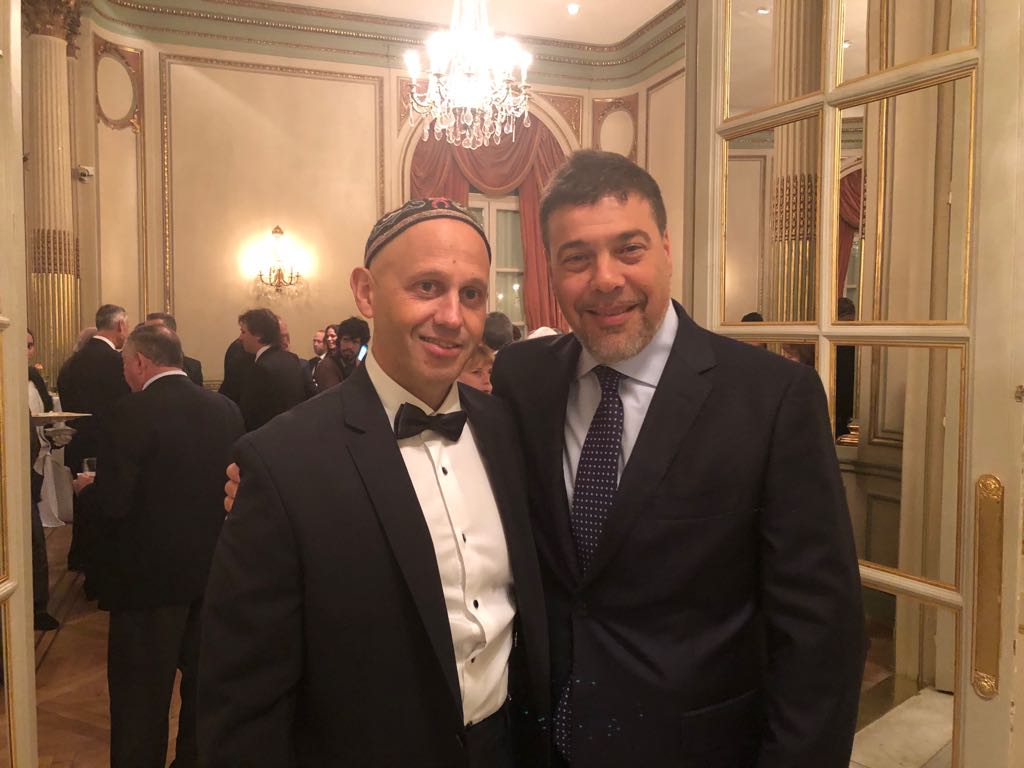
Agencia AJN.- El ministro de Ambiente y Desarrollo Sustentable, Sergio Bergman, recibió un reconocimiento de ORT Mundial el domingo. El funcionario estudió en ORT Argentina y se recibió en el año 1980 de Técnico Químico.
AJN estuvo presente y entrevistó Bergman en una charla en la que repasó su paso por la ORT y habló sobre el modelo de educación al que apunta Cambiemos. “Estoy agradecido por la invitación y el honor que mi escuela me da”, afirmó.
Cabe recordar que “World ORT board of representatives meeting” se lleva a cabo en el Alvear Palace Hotel desde el sábado hasta el martes con la participación de más de 90 representantes de diferentes sedes de ORT, pertenecientes a 20 países del mundo.
Entre las distintas delegaciones que participarán en la ceremonia, se encuentran Argentina, Brasil, Bulgaria, Canadá, Chile, Colombia, Cuba, República Checa, Estonia, Francia, Israel, Lituania, México, Perú, Rusia, Sudáfrica, Reino Unido, Ucrania, Uruguay, Estados Unidos y Venezuela.
A nivel local, asistieron al evento: el juez, Marcos Grabivker; la titular porteña de Educación, Soledad Acuña; el presidente de la Amia, Agustín Zbar; el presidente de ORT Mundial, Conrad Giles; el presidente del consejo de administración de ORT Mundial, Darío Werthein; el presidente del Congreso Judío Latinoamericano, Adrian Werthein; el embajador de Israel en Argentina, Ilan Sztulman; el diputado Waldo Wolff; y el escritor, Marcos Aguinis, entre otras destacadas personalidades del ámbito político y cultural.
– Se lleva a cabo un evento en el que la educación está en el centro del escenario. Usted es un exalumno de la institución y la educación es el foco para cualquier sociedad que intente estar a la altura de lo que viene en los próximos años. ¿Qué significa para usted unir estas partes?
– Sergio Bergman (SB): Es un hito. Se une a mi biografía. Son largos años en que la comunidad me criticó por meterme en política y La ORT es la primer institución de la comunidad judía que me reconoce haber hecho un recorrido, empezando por las aulas de ORT.
Cuando el presidente, Mauricio Macri, decide ponerme a cargo del Ministerio de Medio Ambiente y Desarrollo Sustentable, sonaba extraño que un rabino se ocupará de algo tan técnico y pocos saben que mi formación técnica comenzó justamente en las escuelas técnicas ORT dónde estudié en la calle Yatay hasta graduarme de técnico químico pero, fundamentalmente, en mi aspecto personal, ORT siempre fue mi escuela, mi casa.
Hoy hay una cumbre internacional, de un liderazgo qué tiene que ver con dos principios: uno de nuestra tradición milenaria que valora y potencia la educación como una acción trascendente para darles a las futuras generaciones algo mejor de lo que recibimos; y en segunda instancia, la innovación académica científica y tecnológica que hoy el estado de Israel representa como Start Up Nation.
Antes, la tecnología estaba siendo sesgada (como la escuela técnica industrial). Hoy, la tecnología, desde la dimensión que ORT tiene en todos sus bachilleratos y su liderazgo a nivel mundial, hace posible que se cumpla el principio que también en la Argentina estamos propiciando, que es la sociedad del conocimiento.
El desarrollo sustentable y un futuro mejor solamente son posibles con inversión, con educación, con Innovación y tecnología. Y si hay una institución que sintetiza todos estos aspectos, de una identidad judía pero con una proyección universal, es la ORT.
ORT es una institución judía pero con una proyección universal. No es dedicada únicamente a los judíos. Es una institución líder en la Argentina para la educación y, al mismo tiempo, en el mundo se está dando una transformación donde Israel es reconocida la ORT, no solamente por lo que hace en Israel sino en todo en todo el mundo, forma parte de este networking.
Hoy no nos damos cuenta los privilegiados que somos al tener a World ORT reunido aquí. Es el board de los representativos de todo el mundo, que están reunidos en Argentina con el liderazgo de Darío Werthein, que también forma parte de la continuidad.
Yo siempre recuerdo a su padre , Leo Werthein, uno de los fundadores de la fundación Tzedaká, que tuvo que ver con la renovación de la comunidad. Por eso, que hoy Darío esté liderando a nivel mundial ORT siguiendo la tradición también de Norma que fue presidente de ORT Argentina, marca también una pauta de “cómo” de generación en generación se pasa la antorcha de la educación. Y el liderazgo en la comunidad se da cuando al mismo tiempo vivimos crisis y deterioro y hay que poner énfasis en lo que sí funciona y prospera.
Nuevamente, estoy agradecido por la invitación y el honor que mi escuela me da.
– ¿Cómo se empieza a bajar lo que tiene que ver con la educación en la Argentina, que está necesitando un cambio muy grande en todo aspecto? ¿Sos un optimista en ese sentido? ¿Crees que vale el esfuerzo y es necesario?
– SB: El presidente Macri fue muy claro. Si nosotros no evaluamos la educación, no la vamos a poder mejorar. Fuimos duramente criticados por fijar parámetros que plantean decir la verdad. Si no medimos, no se puede evaluar, hay solamente intención y no hay políticas públicas ni desarrollo de la educación.
Por lo tanto, yo creo que Argentina está encaminada en esta nueva etapa, en hacer algo parecido que lo que nosotros ya vimos en instituciones como la ORT y en otras instituciones serias que es basarse en la verdad, en la Innovación, en la inversión y, sobre todo, en la capacitación de sus recursos humanos que son en este caso los docentes donde cuenta el reconocimiento que nosotros necesitamos darles como trabajadores.
El tema es que nosotros en Argentina degradamos la vocación docente en tener solamente trabajadores gremializados, sindicalizados, en un reclamo que a veces es legítimo pero que muchas veces antepone los dirigentes sindicales a los reclamos de los docentes y a la necesidad de una sociedad que sigue estando atrasada.
Estamos en el mes de mayo y en la provincia de Buenos Aires todavía no se pudieron resolver las paritarias docentes. Una provincia que fue entregada en estado catastrófico como el país y que nos da la pauta de que hay otros docentes que todavía no tienen dirigentes que los representen genuinamente en esta manera de poner al docente en el centro de la acción y a la educación en la construcción del futuro.
P– Estar sentado en el sillón del ministerio no se pierde el optimismo. ¿Cómo se le gana a las situaciones adversas para poner al país a donde uno finalmente quiere llevarlo?
– SB: Para mí es una situación de privilegio, de orgullo y de entusiasmo. Más allá del bullying digital y mediático que en la primera etapa tuve. Yo me siento respaldado, no solamente por el presidente y la jefatura de gabinete, sino por el aprendizaje y la posibilidad de cuántas cosas importantes se pueden hacer para que la gente viva mejor.
Es un ministerio totalmente transversal y, fundamentalmente en la colegiatura de armar equipos. Porque el ambiente sustentable no es de un ministerio, es de un gobierno, y al mismo tiempo es de un país que es Federal y trabaja con las provincias. Fundamentalmente pone en valor una política que en Argentina no existía, qué es la política ambiental, y es algo que los argentinos no siempre valoramos, que es lo importante que es cumplir con la ley.
Y en la medida que Argentina cumple con la ley se vuelve predecible, ingresa al mundo en una inserción inteligente y algo que la gente no siempre vincula, es que: Que Argentina tenga una política ambiental es lo que nos va a permitir entrar en la OCDE, liderar como lidera Macri hoy el G20 y ser reconocidos a nivel mundial. Porque esa es una agenda de futuro que Argentina la tiene muy demorada y que hoy la podemos poner en valor.
Argentina
Entrevista con Marcos Aguinis: su nuevo libro y la amenaza del antisemitismo
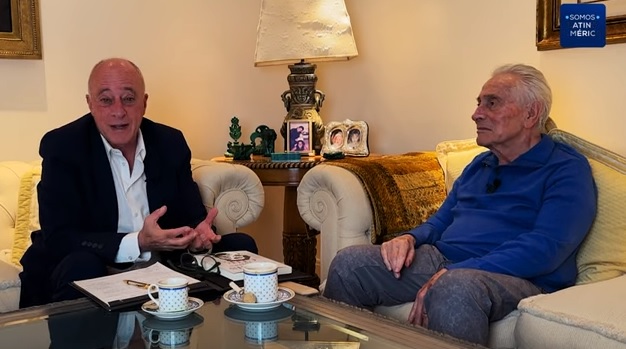
Agencia AJN.- Con sus 90 años, Marcos Aguinis acaba de publicar “Intimidades del Che”, una obra de ficción que explora la vida de Ernesto “Che” Guevara. En el marco de un ciclo de entrevistas conducido por Daniel Berliner, director de la Agencia AJN, el escritor reflexionó sobre su nuevo trabajo y sobre fuerte aumento del antisemitismo a nivel mundial.
“El 7 de octubre es un acontecimiento muy reciente. Y que aparentemente era imposible que ocurriera. Uno tiene que pensar que lo fundamental es que los judíos no nos convirtamos en fanáticos. Que no imitemos a nuestros enemigos. Y odian a Israel sin saber qué son los judíos. A muchos antisemitas se les pregunta ¿usted sabe dónde queda el río Jordán? Ni idea, responden. Nos encontramos con una fuerte ignorancia a la que tenemos que enfrentar mediante la paz, el diálogo, que lleve a que este enfrentamiento desaparezca. Al desaparecer este motivo de odio, desaparecerán otros motivos de odio”, destacó Aguinis.
“Es más fácil odiar que amar, y esto tiene que ser combatido. Y es combatido por las mentes más lúcidas. El antisemitismo que ahora se propaga en las universidades es algo que tiene poco a poco producir la vergüenza de los universitarios. No saben qué odian”, agregó.
La entrevista fue transmitida por Dnews en el ciclo “Diálogos”, una entrega semanal que propone un espacio de conversación inteligente, plural y comprometido con la actualidad.
En cada emisión, personalidades relevantes del ámbito político, social, cultural y comunitario se sientan a dialogar sobre los temas que marcan la agenda nacional e internacional.
“Hace unos años Jorge Fernández Díaz me tituló a mí ‘hombre del renacimiento’, porque quedó impresionado por la cantidad de actividad que hago. Según él, eso me hermanaba con la gente del renacimiento, que tenía varias profesiones y en todas ellas tuvo algún tipo de brillo”, expresó Aguinis al principio de la entrevista.
Para ver el programa completo:
Argentina
Rafael Grossi: “El conflicto entre Israel e Irán está tomando una dimensión mucho más amplia”
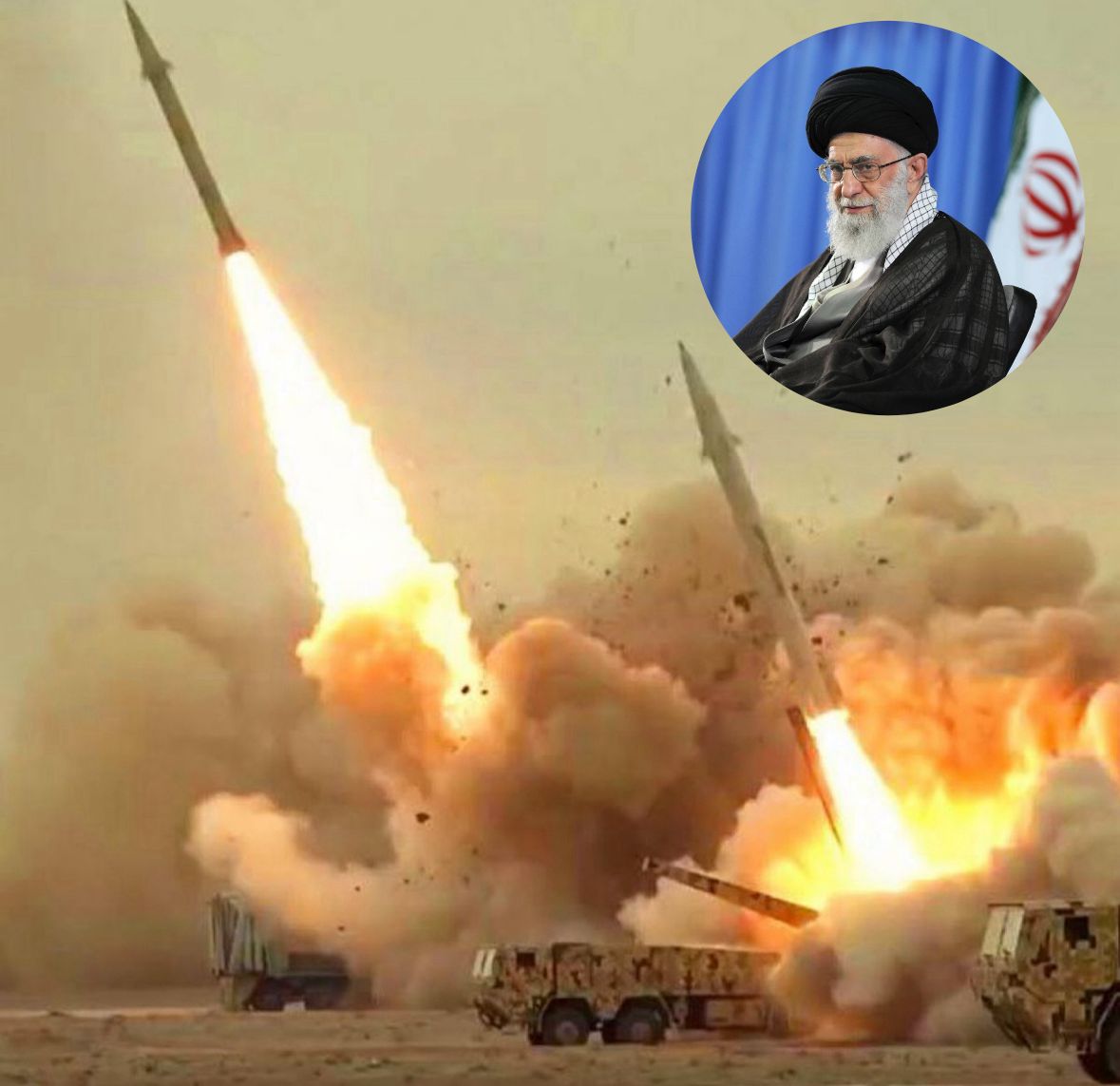
Agencia AJN.- El director general del Organismo Internacional de Energía Atómica (OIEA), Rafael Grossi, destacó que los ataques israelíes “en un primer momento fueron orientados exclusivamente a ciertas instalaciones nucleares y ahora el conflicto está tomando una dimensión mucho más amplia, incluyendo otros objetivos que no son nucleares”.
“La historia ha tomado un giro más dramático a partir del momento en que Israel, la semana pasada, inició una serie de ataques, que en un primer momento fueron orientados exclusivamente a ciertas instalaciones nucleares y ahora el conflicto está tomando una dimensión mucho más amplia, incluyendo otros objetivos que no son nucleares. La parte nuestra obviamente tiene que ver con las instalaciones nucleares y por eso ha habido una serie de reuniones en la Junta de Gobernadores del OIEA. El día viernes estuve hablando al Consejo de Seguridad de las Naciones Unidas para informar a todos los países acerca de la situación y cuáles son los peligros que pueden derivarse”, afirmó Grossi en diálogo con el periodista Eduardo Feinmann en Radio Mitre.
-¿Hay riesgo químico cuando un misil ataca a una de estas plantas nucleares?
-Hay un riesgo nuclear en primer lugar, aunque también puede haber un riesgo químico. Trato de diferenciar las dos cosas. Hay distintas instalaciones. En estas instalaciones que tienen distintas funciones, algunas son para enriquecimiento de uranio, otras son para fabricación de combustible, otros son laboratorios. Y en esos lugares entonces lógicamente hay material nuclear. Si el material nuclear, a raíz de una explosión o del impacto de un proyectil de distinta naturaleza, es liberado al medio ambiente, puede haber entonces un impacto ambiental, como radiación en la atmósfera. Esto es lo que se está tratando de determinar. Por el momento, han sido muy graves, pero si usted quiere que nos detengamos en la cuestión de la radiación, han tenido un efecto muy limitado en ese aspecto, y no me refiero al impacto o a la destrucción que han causado, se han limitado a instalaciones que tenían una cantidad relativamente limitada de material nuclear y por eso la contaminación ha sido muy limitada al lugar donde se produjo el impacto. Esto es obviamente por el momento.
-¿Usted está al tanto de una planta nuclear que está bajo tierra que tienen los iraníes y que podría llegar a ser bombardeada por Trump?
-Sí, claro, la inspeccionamos, yo la he visitado particularmente. Hay fundamentalmente dos instalaciones en las que Irán justamente ha puesto material y equipo nuclear bajo tierra a raíz de ataques anteriores que han habido en Irán, de tipo sabotaje, nunca atribuidos a ningún país. Pero el hecho es que Irán había sufrido ya en alguna de sus instalaciones sabotajes internos o ataques con drones, entonces en ese momento los iraníes decidieron, hace dos o tres años, comenzar a poner bajo tierra ciertos equipos e instalaciones.
-Para la bomba atómica, la clave está en el uranio enriquecido. ¿A qué porcentaje ya lo tenían o lo tienen preparado los iraníes?
– Para tener un arma nuclear hace falta uranio enriquecido, también puede ser plutonio, pero en el caso de Irán, lo que ellos han estado acumulando es uranio enriquecido. El uranio tiene que estar enriquecido a un grado de 90% de un isotopo, que es una variedad de la partícula de uranio, al 90%, y ellos están acumulando al 60%. No han llegado a acumular al 90%, pero de querer hacerlo es un pasito más. Ellos tienen el material, y ese material sería suficiente para 6, 7, 8 armas nucleares, pero esto no quiere decir que tengan hoy un arma nuclear.
-Israel y Estados Unidos denuncian que estaban a punto de tener 15, y entonces hicieron ese ataque preventivo para que no las terminen de fabricar.
-Eso es lo que dicen ellos, correcto. Lo que nosotros decimos, es que es inquietante esto, lo hemos informado, hemos inclusive, tenido una evaluación bastante crítica con relación a la manera en que Irán nos respondía o nos daba información necesaria sobre este tema, que ha sido bastante fragmentaria, pero no podemos decir que hoy tenga un arma nuclear. Para eso hace falta más material.
-¿Esto usted lo habló con Trump y con Netanyahu?
-No directamente con ellos, pero con gente muy cercana a ellos, sí, muy cercana.
-¿Y usted cuando los iraníes, el Ayatolá o quien sea, le cuentan lo que tienen, usted les cree?
-En cuanto a lo que tienen, nosotros sabemos lo que tienen, el tema es lo que tienen y no sabemos. O lo que no informan, esto lo he estado denunciando mucho y hace tiempo en el sentido que Irán, siempre decían o dicen que ellos no tienen nada que ocultar. Entonces nosotros, como Organismo Internacional de Energía Atómica, les decimos a ellos, si no tienen nada que ocultar, entonces tienen que mostrarnos mucho más. Ellos siempre han evadido un poco esto y bueno, estamos en esta situación en la que estamos.
-
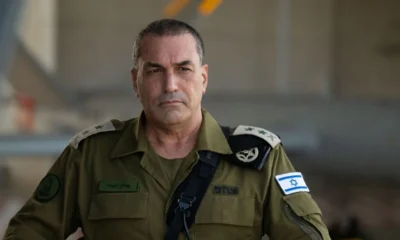
 Israelhace 22 horas
Israelhace 22 horasEl jefe de las FDI insinúa una guerra prolongada: «Lanzamos esta campaña para eliminar la amenaza»
-
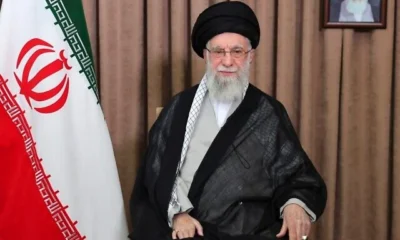
 Medio Orientehace 3 horas
Medio Orientehace 3 horasKhamenei ha elegido a tres posibles sucesores en caso de ser asesinado
-
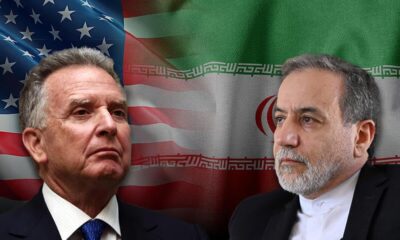
 Medio Orientehace 23 horas
Medio Orientehace 23 horasIrán rechaza negociaciones con Estados Unidos mientras continúen los ataques israelíes
-
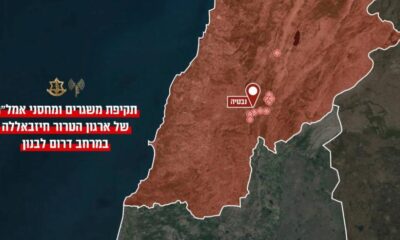
 Medio Orientehace 23 horas
Medio Orientehace 23 horasLas FDI llevaron a cabo una serie de ataques contra objetivos de Hezbolá en el sur del Líbano
-
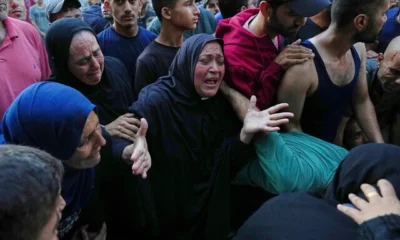
 Medio Orientehace 22 horas
Medio Orientehace 22 horasLas autoridades sanitarias controladas por Hamás afirman que los ataques israelíes abatieron a 44 palestinos
-

 Medio Orientehace 21 horas
Medio Orientehace 21 horasIrán dispara misiles más avanzados a medida que Israel suaviza las restricciones
-
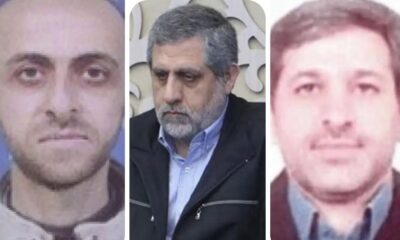
 Medio Orientehace 3 horas
Medio Orientehace 3 horasIsrael elimina a tres altos responsables iraníes y de Hamás, hombres claves en la financiación y armamento del terrorismo
-
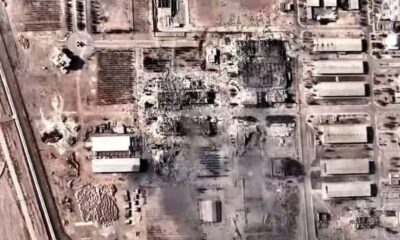
 Medio Orientehace 2 horas
Medio Orientehace 2 horasLas FDI atacan la central nuclear de Isfahan, en el centro de Irán








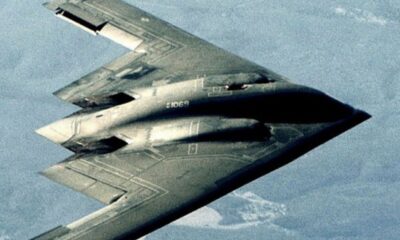


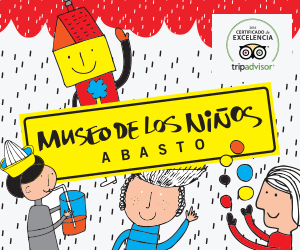
 Suscribite al Whatsapp!
Suscribite al Whatsapp!